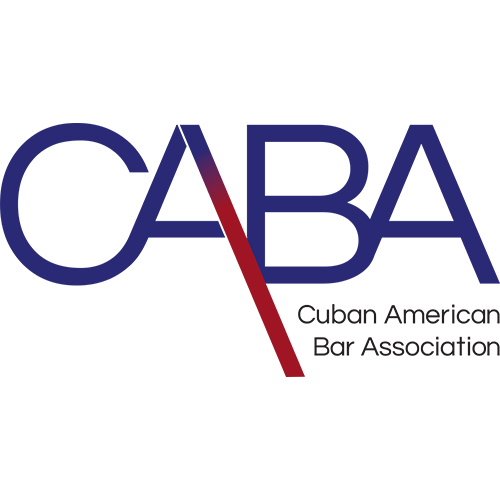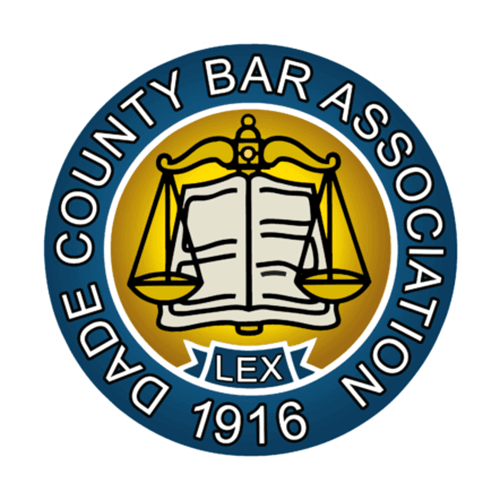Miami Personal Injury Lawyer
PROTECTING YOUR RIGHTS SINCE 1983
The personal injury attorneys at Bernstein & Maryanoff, Injury Attorneys, have the knowledge and experience necessary to get the maximum compensation for your case.
Accident injuries and wrongful deaths are daily occurrences. For example, in 2021, there were 22,196 car accidents in Miami, injuring over 11,000 people — 60 of these motor vehicle accidents (MVAs) involved fatalities. The same year, over 13,400 people were hospitalized for unintentional injuries in Miami-Dade County. This figure does not include those who received treatment in emergency rooms and were discharged without being admitted.
In addition to car accidents, there are several other ways people suffer injuries, including premises liability incidents, workplace accidents, and criminal acts.
Suppose you have been injured in an accident. In that case, you may have unexpected expenses causing financial hardship, emotional distress, and physical injuries. Unless you work in the legal field, you may find the legal process confusing and overwhelming, particularly if you’re coping with life-altering injuries or loss. You may be uncertain whether you have grounds to file a lawsuit, how much it costs to hire a lawyer, and whether a personal injury attorney can help. Understanding what personal injury lawyers do, the requirements for justifying a claim, and how much it costs to hire an attorney specializing in tort law will help confirm if you have a case and the steps you should take to resolve your claim. It can be overwhelming to sort out your life after suffering a traumatic accident. You may not know which way to turn to get on track again. That’s where we come in. We help by representing you in a legal claim to get the maximum compensation for your damages and losses. We are highly skilled in personal injury case practice. We know what it takes to fight for your rights while you focus on your recovery. Together, we can begin to stabilize your situation and return it to normal.
What Kind of Cases Do Personal Injury Lawyers Handle?
Personal injury lawyers handle multiple case types, including the following:
- Animal attacks
- Bicycle accidents
- Birth injury
- Boating accidents
- Car accidents
- Crime victims
- Drunk driving accidents
- Hit-and-run accidents
- Jet ski accidents
- Legal Malpractice
- Lyft and Uber accidents
- Medical malpractice
- Motorcycle accidents
- Nursing home abuse
- Self-driving cars
- Sexual assaults
- Negligent security
- Product liability claims
- Slips, trips, and falls
- Traumatic brain injury
- Truck accidents
- Wrongful death
Florida’s Serious Injury Threshold
In terms of automobile insurance, Florida is a no-fault state. People with registered vehicles must have personal injury protection (PIP) and property damage liability (PDL) insurance. After an accident, injury victims will use their PIP insurance to cover medical expenses, and they will use their PDL insurance to cover property damage costs. Accident victims use their insurance policies even if they aren’t at fault for the accident.

However, PIP and PDL do not provide limitless coverage for expenses. Even with PIP insurance, you will pay 20% of medical expenses out of pocket, and the amount you can claim per accident is capped at $10,000. Consequently, accident victims with severe injuries and higher medical costs may need to file a lawsuit against the at-fault party to seek damages to cover their expenses.
Florida allows accident victims to seek compensation when the state’s serious injury threshold is met. Grounds for meeting this threshold include the following:
- The accident caused a fatality
- The injured party received a medical diagnosis indicating they had suffered a permanent injury
- The injured party suffered a crucial bodily function that has been permanently lost because of the accident
- The injured party suffered disfigurement or scarring
The serious injury threshold applies to car accidents but does not apply to other personal injury cases. For example, individuals affected by dog bites or slip-and-fall accidents do not have to meet the threshold to justify a claim for damages.
How Bernstein & Maryanoff Injury Attorneys Can Help You After an Injury
At Bernstein & Maryanoff, Injury Attorneys, our top Florida personal injury lawyers have represented accident victims and their families for more than 30 years in Florida and throughout Broward and Miami-Dade counties. We have successfully won a multitude of personal injury cases for our clients, delivering the financial results that allowed them the security to get on with their lives after experiencing a severe or catastrophic accident. We can do the same for you, too.
We help by representing you in a legal claim to get the maximum compensation for your damages and losses. We are highly skilled in personal injury case practice and know what it takes to fight for your rights while you focus on your recovery. Together, we can begin to stabilize your situation and return it to normal.
When we say “personal injury,” we are referring to physical harm to a person’s body. It is separate from property damage; however, compensation for property damage can be included in a personal injury claim as long as there was physical harm.
What Does a Miami Personal Injury Lawyer Do?
You may wonder what your personal injury lawyer will do exactly. We start with filing a summons and complaint and submitting it to the court. The other party (defendant) involved in the case must be served formal legal papers. It gives the defendant time to answer through their legal counsel and insurance representatives. This initial paperwork begins the court process. Depending on the severity of your injuries and the follow-up medical care needed, we continue adding further medical reports to build an entire incident report of your case’s details. It is a team effort necessary to abide by the laws and regulations of the case filing process.
Incident Investigation Reports
In most states, lawyers compile an incident report after investigating their client’s accident. This report is a valuable tool for litigators to understand what happened, the conditions at the time, and any immediate action that followed.
Different states will have different jurisdictions regarding whether the report is used as a discoverable record or a protected work product created in anticipation of litigation. Florida courts have established that these reports are qualified as work products and can be withheld as privileged information.
Communicating and Negotiating With Insurance Companies
Often, insurance companies will want to settle out of court because it’s more costly for them to go to trial. They may offer a settlement amount that is lower than you deserve. We will negotiate further with them to achieve the maximum settlement amount for your damages. The amount will depend on the circumstances of your case. The myth of a million-dollar settlement is not always accurate because cases are settled daily in the four-, five-, and six-figure range. Going to trial with a judge and jury may also be necessary if the opposing insurance company doesn’t want to settle higher.
Professional Representation
A personal injury lawyer will professionally represent you, keeping your best interests at the forefront of the case at hand. We stay up-to-date on changes to Florida law that can impact your case. You can rely on our expert knowledge and experience to steer your case in the right direction. Our goal is to help you achieve monetary awards for damages suffered and advice on how best to handle your financial future going forward with careful planning and consideration. We can discuss various options that can be available to you after reaching a verdict or settlement.
We Handle the Work so You Can Focus on Recovery
You shouldn’t have to worry about how things will be handled while in your injured condition. We will put together all the case details and outline how our team of personal injury lawyers can help you. We will do the heavy lifting for you in scouring the evidence in a timely manner, including police and medical reports and eyewitness accounts. We’ll also review what to expect as the case progresses and inform you of developments. We are strong communicators committed to seeing you through to a final settlement, either in or out of court, for a beneficial outcome.
What if I Can’t Afford To Hire a Personal Injury Attorney?
You do not need to pay a retainer or legal fees when hiring a personal injury attorney. Our attorneys charge contingency fees. Your attorney will calculate the contingency fee after receiving a settlement or judgment.
Contingency fees are a percentage of the money you receive for your claim. They are typically between 33% and 40% of your settlement or judgment. You only pay the contingency fees if your attorney wins your case. Consequently, a personal injury lawyer can help you seek justice for an accident injury or wrongful death without adding to your financial challenges.
What Damages Can Be Recovered in a Personal Injury Case?
Injury and wrongful death victims can seek economic and non-economic damages from the liable party. Some injury and the family of wrongful death victims can also seek punitive damages.
Economic Damages
You can seek reimbursement for expenses caused by your injury. Reimbursements include compensation for reasonable future losses. Suppose you suffer a spinal cord injury (SCI) and must use an assistive device to walk. Consequently, you’re unable to return to your career as a plumber. You can include future lost wages and job retraining expenses.
Also known as monetary damages, economic damages place responsibility for the costs stemming from your injuries or loss on the at-fault party. Costs you can claim as monetary damages include the following:
- Burial fees
- Childcare
- Funeral expenses
- Home maintenance
- Home remodeling
- House cleaning
- Job retraining
- Lost income
- Medical bills
- Property damage
- Relocation
- Transportation costs
Individuals suffering from permanent disabilities may need to remodel their homes, add ramps, or make other modifications to enable them to navigate in a wheelchair or while using a walker. Sometimes, they may need to move to a home with a different layout.
Individuals who cared for their minor children and now need assistance may seek childcare costs, and those unable to mow the lawn or perform other routine maintenance tasks may seek reimbursement if they hire someone else to complete those tasks.
Non-Economic Damages
Also known as non-monetary damages, non-economic damages compensate for the personal suffering you’ve experienced because of your injuries or loss. Although courts cannot make you whole physically or emotionally, they seek to acknowledge your suffering with financial compensation based on the nature and degree of your suffering. Non-economic damages typically fall within three main categories: pain and suffering, trauma and mental anguish, and loss of quality of life.
Pain and Suffering
Pain and suffering can be used as an umbrella term to include trauma and mental anguish. When considered separately, pain and suffering refers to the following:
- Personal distress
- Physical pain
Personal distress can be sorrow stemming from your experience and its impact on your life. It could also include anger at the at-fault party. You may struggle to forgive or feel like your personality has changed because you’re unable to trust people after an assault.
Trauma and Mental Anguish
Trauma and mental anguish refer to the emotional and mental toll from your injuries or loss. Grounds for trauma and mental anguish claims can include the following:
- Anxiety
- Depression
- Grief
- Phobias
- Post-traumatic stress disorder (PTSD)
Loss of Quality of Life
Suppose your injuries prevent you from pursuing your favorite recreational activities, like hiking or horseback riding. The inability to engage in regular activities is grounds for compensation because of a loss of quality of life.
Loss of consortium is another loss affecting your quality of life. Suppose you suffer severe injuries and are no longer able to be intimate with your spouse. This qualifies as a loss of consortium claim. Losing your spouse to a wrongful death is also grounds for seeking damages for loss of consortium.
Punitive Damages
Punitive damages apply to cases involving gross negligence. Proving gross negligence means establishing the at-fault party engaged in reckless behavior they knew was likely to cause harm, and their recklessness caused injuries or death. Grounds for punitive damages include the following:
- Assault
- Attempted murder
- Driving under the influence
- Reckless driving
- Street racing
Any illegal or reckless action causing harm may justify seeking punitive damages. Your personal injury attorney can confirm if you have grounds to seek these damages.
Do You Have a Personal Injury Case?
Injuries or suffering a loss do not automatically justify a personal injury lawsuit. You must be able to establish one or more party’s liability by proving their negligence. There are four things you must establish to justify a case.
- Duty of care: Meeting societal expectations means upholding your duty of care. For example, those driving on roadways are expected to follow local traffic laws. Following those laws is one way you uphold your duty of care to others. Acting in a manner that promotes the safety of those around you is another way you uphold your duty of care. The first element required for you to have a viable personal injury lawsuit is to establish that the liable party had a duty of care.
- Breach of duty: Once you establish that the person responsible for your injuries or loss has a duty of care, you must prove they did not uphold that duty. This means that their actions or inactions qualify as a breach of their duty.
- Causation: Establishing the at-fault party’s duty of care and breach of duty is the foundation of your case. Next, you must show that their failure to uphold their duty caused or contributed to your injuries or loss. You must show that you would not have endured these injuries or loss or that the injuries or loss would have been less severe if they’d upheld their duty.
- Damages: You must demonstrate that you suffered losses because of your accident. Financial and personal losses qualify.
Examples of Negligence
Multiple examples of negligence exist. These examples demonstrate a person’s duty of care, their breach of duty, and the harm this breach caused. It’s crucial to note that negligence can be unintentional. While a person who assaults someone has committed an intentional tort, people who harm others without intending to do so may still be liable for damages.
Wrong Medication
Medical professionals must provide appropriate medical care to their patients. Nurses must administer the correct medication at the right time via the right method to the right patient. Failing to follow these steps constitutes a breach of duty and can have severe consequences, including death. When a person suffers physical harm or death because they received the wrong medication or the wrong amount of medication, it’s proof of negligence.
Slip-and-Fall Injury
Suppose you go to the grocery store. It’s rainy, and high winds are driving water inside the store. Although the manager knows there is water on the floor, he does not have staff mop up the water or set out signs warning customers about this hazard. You slip on the wet floor, fall, hit your head, and land on your arm. In addition to breaking your arm, you suffer a traumatic brain injury (TBI). Although the store manager was responsible for maintaining a safe environment, they failed to do so, and their negligence caused your injuries. Consequently, they may be liable for damages.
Defective Products
Suppose a product manufacturer tests a new product and realizes it has some flaws that increase the chances those using the product may suffer burns. Despite these test results, the company releases the product, failing to uphold its duty of care to its customers. You buy the product and suffer third-degree burns because it malfunctions. You have grounds to establish their negligence caused your injuries.
Steps to Filing a Personal Injury Claim in Miami
Preparing to file a personal injury claim begins the moment the incident occurs. You don’t have to wait until you talk to a personal injury attorney to build a claim. Taking the following steps will strengthen your case and protect you from false allegations at the accident scene:
- Collect evidence: Make notes about the accident site and any relevant factors you observe. Suppose you were in a car accident. Were the traffic lights working? Does the driver who hit your vehicle appear inebriated? Could weather be a factor? You can also talk to witnesses and gather their contact information. Taking photos is an excellent way to preserve accident scene details. You can also supplement your photos with video footage.
- Determine liability: Sometimes, it’s clear who caused your injuries. Sometimes, it’s more complex. Suppose you’re injured in an accident involving a delivery truck. The driver could be at fault; however, the company that owns the delivery truck may be at fault if maintenance issues caused the accident.
- In some cases, the driver and vehicle owner may share liability: There are also situations where more than one motorist shares liability for a car accident. If you’re pursuing a premises liability claim, you may have to determine whether the building’s occupant or owner is liable.
- Calculate damages: Calculating damages involves determining what damages you can seek and establishing an appropriate amount for each category. While you can calculate actual costs to determine the monetary damages, you’ll benefit from an attorney’s help when setting a figure for non-monetary damages.
- Hold settlement negotiations: Pursuing a settlement involves meeting with the defendant’s insurance company to attempt to negotiate a resolution to your claim
- File a lawsuit and seek a judgment: Suppose you don’t receive a fair compensation offer during settlement negotiations. In that case, you can file a lawsuit and present your case in court.
Florida’s Personal Injury Statute of Limitations
The clock starts ticking from the date of the accident. Generally, you have two to four years to file a claim, but it depends on the type of claim. For example, personal injury cases where negligence was present require a filing within two years from the date of the accident. However, it’s best to talk with an experienced attorney while the accident is still fresh in mind. You can have a family member contact us on your behalf if you are still in the hospital or recuperating at home or a care facility. We’ll answer your questions.
The timeline involved with the legal filing process can take months to possibly a year, gathering all the investigative material needed to press the lawsuit forward. You don’t want to lose any time to get the ball rolling in your favor. Call us even if you’ve given it some thought and are uncertain. We can help clear up any doubts you may have about how the whole process works.
Compensation for Florida Personal Injury Claims
Clients often ask how much they will receive for their personal injury claims. The value of personal injury claims depends on many factors, including:
- The severity of the injuries
- The amount of income lost by the victim
- How the injuries affected the victim’s life
While we cannot speak to the average compensation other firms have obtained, we can describe the results obtained by a Miami personal injury attorney from our firm. We have secured many verdicts or settlements for car accidents that resulted in death or catastrophic injuries.
Why Should I Hire a Personal Injury Lawyer?
The best personal injury lawyer in Miami for your case will have several of the following characteristics:
- Deep knowledge of personal injury law
- Extensive courtroom experience
- A track record of successfully resolving injury cases
To prove your case, you must present persuasive evidence and legal arguments to insurers and juries. A personal injury attorney will do this for you while providing sound legal advice so you can make informed decisions about your case.
Why Choose Bernstein & Maryanoff as Your Miami Personal Injury Lawyers?
Our firm has represented injured clients in Miami since 1983. Together, our attorneys have decades of experience standing up to insurers and at-fault parties to get full and fair settlements for our clients. We also have a long record of courtroom success when insurers refuse to settle claims.
FAQ
How Long Does a Personal Injury Case Usually Take in the State of Florida?
Insurers often delay and deny unrepresented claimants to frustrate them and cause them to give up. A personal injury accident lawyer in Miami from Bernstein & Maryanoff can hold insurers to task so they resolve the claim in a reasonable time or move forward to litigation.
How Long Does a Personal Injury Lawsuit Take to Reach a Settlement?
Most personal injury cases are settled. However, the time required to settle can depend on the facts of the case. If we have evidence that clearly establishes liability, the insurer may agree to terms within a few weeks.
What Happens if I’m Partially at Fault for the Accident?
Florida uses comparative fault to allocate the blame for an accident. If you are partially at fault for your injuries, your compensation may be reduced in proportion to your share of the blame.
What Is a Personal Injury Demand Letter?
A demand letter gives the other party notice of your claim. In most cases, the other party will forward the letter to their insurer to begin the claim process.
Check Out Our Client Reviews and See What People Are Saying About Us
We have hundreds of five-star Google reviews. For example, one client stated that his case was resolved in no time, and his results were great. He also described our firm as very professional and caring.
Contact Our Miami Personal Injury Attorneys for Expert Advice
Our attorneys have the experience, knowledge, and skills to obtain a fair outcome in your case. We have successfully represented thousands of clients and secured millions in life-changing financial compensation for injured people like you.
If You Have Been Injured, Let Bernstein & Maryanoff, Injury Attorneys, Fight for You
After suffering an injury or wrongful death, an injury attorney will prepare your case and help you fight for fair compensation. When you turn to Bernstein & Maryanoff, Injury Attorneys, to hire an experienced personal injury lawyer, you’ll get expert legal guidance from a Miami personal injury lawyer who has spent years fighting for victims’ rights. We will establish grounds for your lawsuit, gather evidence, build your case, and negotiate to get you the best possible settlement. We are here to answer your questions, explain the negotiation process, and ensure you understand your legal options to get the justice you deserve.
Contact us online or at 1-800-429-4529 to schedule your free consultation.
Areas We Service in Miami, Florida
Aventura | Coral Gables | Coral Springs | Cutler Bay | Doral | Davie | Fort Lauderdale | Hialeah | Hollywood | Homestead | Kendall | Miami Beach | Miami Lakes | Miramar | North Miami | Palmetto Bay | Pembroke Pines | Pinecrest | Pompano Beach | The Hammocks | Weston
Citations:
Engel, D. (2020). Discoverability of Workplace Incident Reports.
Fees and Expenses. (2020).
FLA. STAT. § 95.11(3)(a).
Florida Insurance Requirements. (2024).
Hospital medication error kills patient in Oregon. (2014).
Miami Road Safety Overview. (2024).
The 2023 Florida Statutes (including Special Session C): 627.737. (2024).
Trends and Percent Change in Causes of Injury Hospitalization, Miami-Dade County Residents, All Ages, 2000-2022. (2024).





